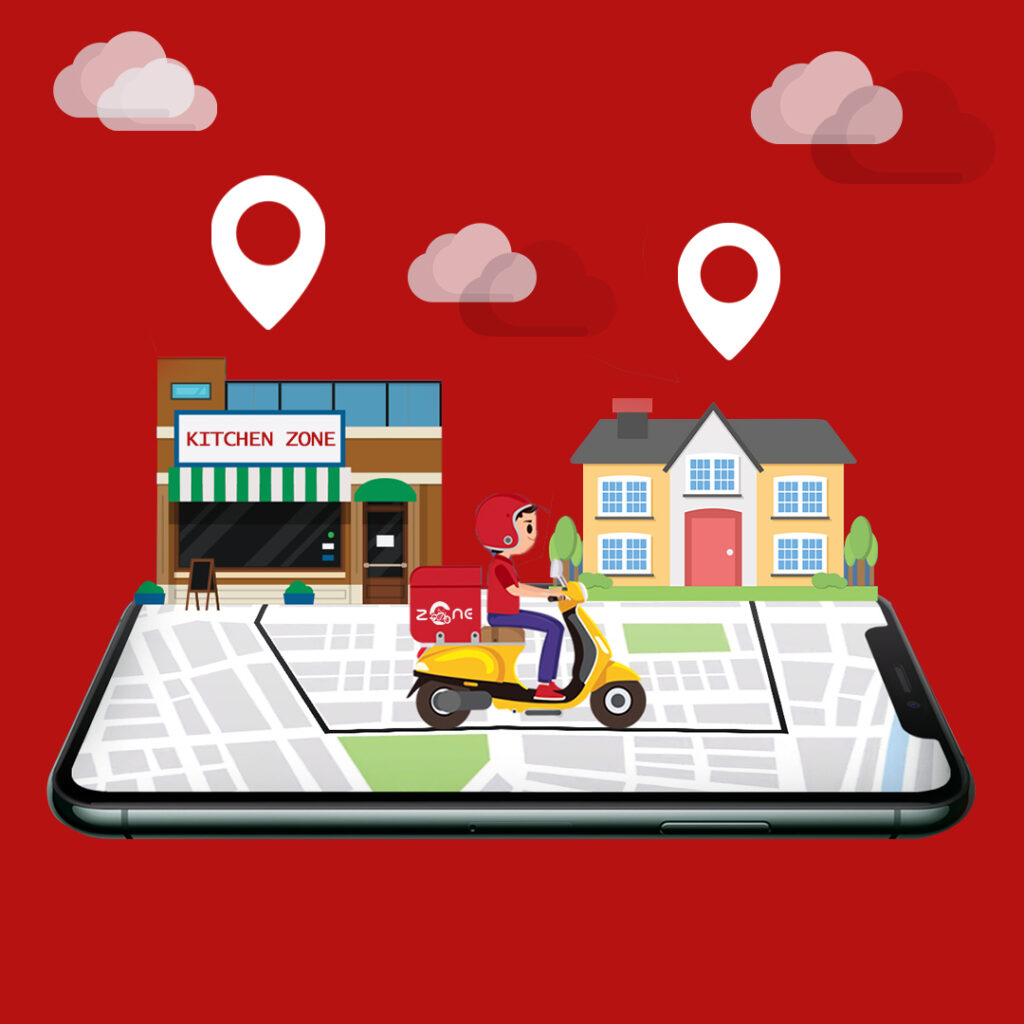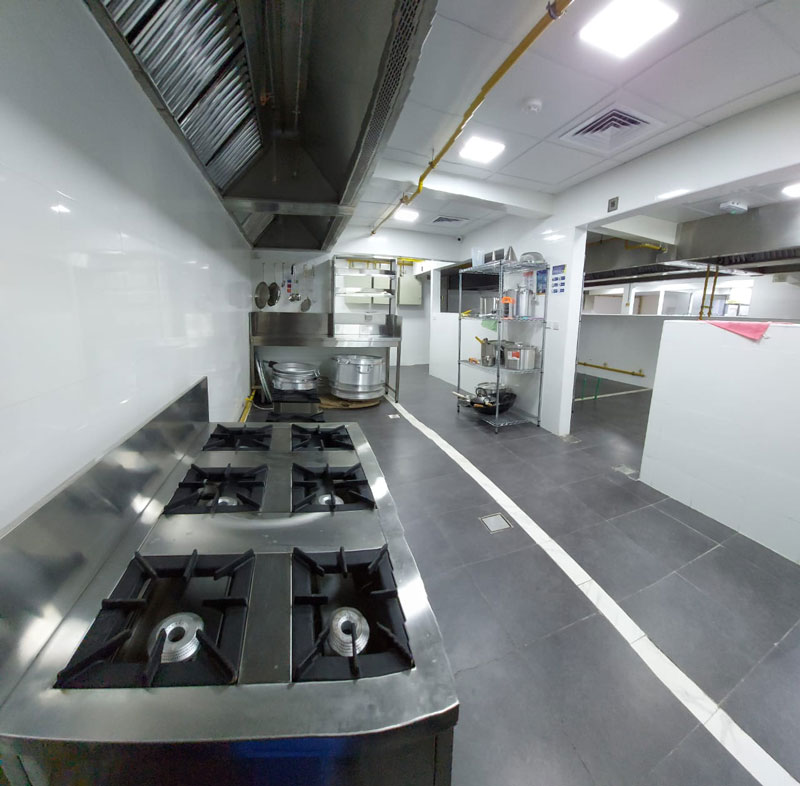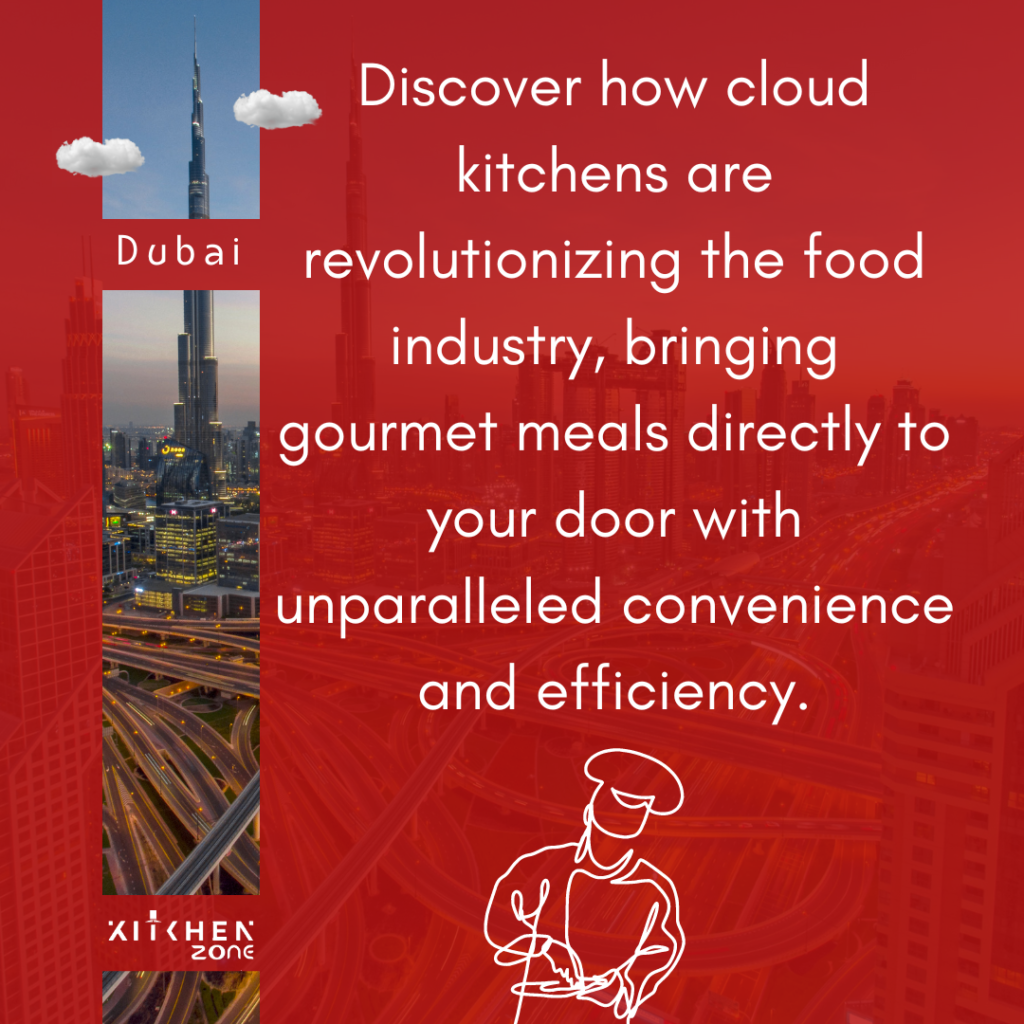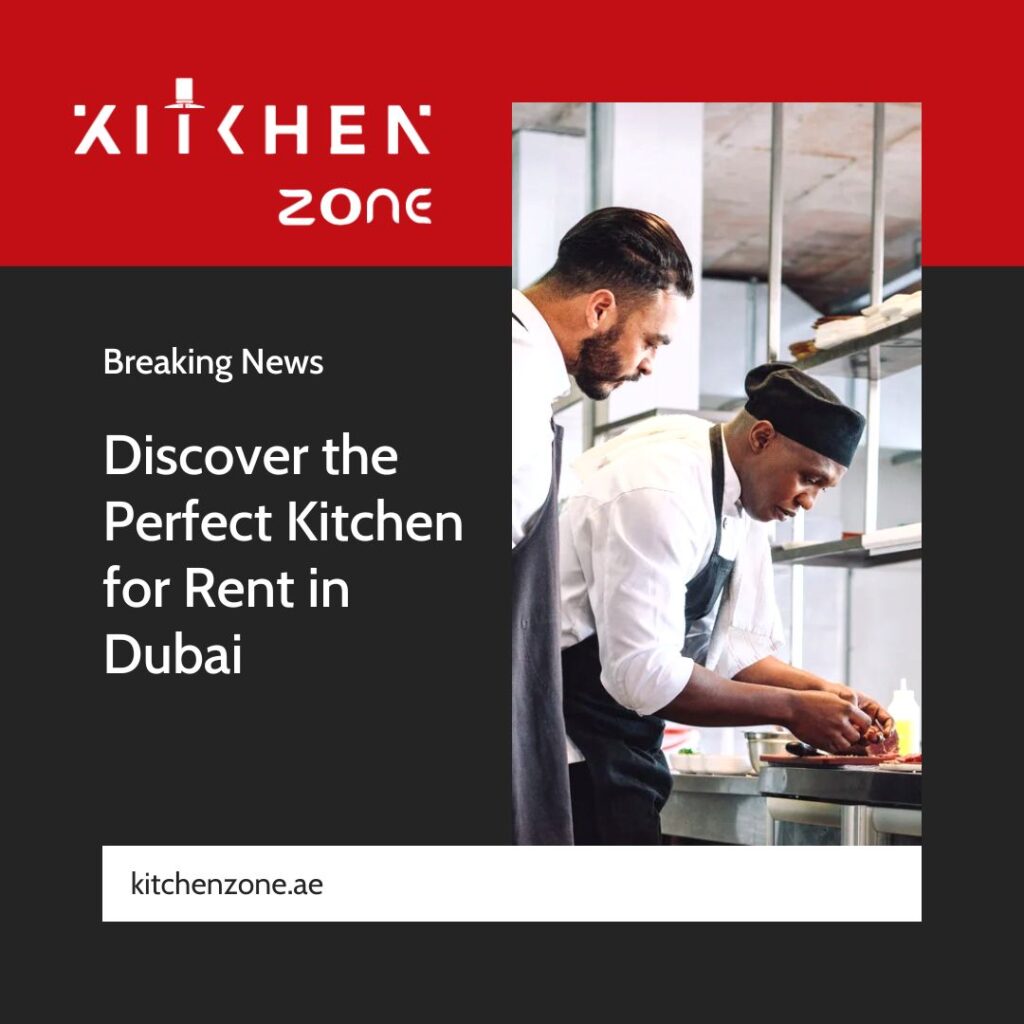Table of Contents
Exploring Virtual Kitchen in Dubai Revolution: How Digital Dining is Changing the Culinary Scene
Dubai, a city known for its luxurious lifestyle and innovative spirit, is now at the forefront of a culinary revolution: the rise of virtual kitchens in Dubai. As the culinary landscape transforms, digital dining is challenging traditional establishments and redefining how we think about food. No longer do we need to step out to savor gourmet meals; instead, a smartphone and a swift swipe can transport us into the heart of Dubai’s bustling gastronomic scene. From ghost kitchens popping up in hidden corners to state-of-the-art culinary tech that streamlines food preparation and delivery, the virtual kitchen trend embodies convenience and creativity. Join us as we explore how this digital dining phenomenon is shaping the future of food in Dubai, offering a unique blend of flavor, efficiency, and innovation that’s tantalizing taste buds and capturing the imaginations of food lovers everywhere. Discover how these virtual dining experiences are not just a passing trend but a thrilling new chapter in Dubai’s culinary narrative.
The Rise of Ghost Kitchens in Dubai
Dubai’s culinary scene has always been synonymous with opulence and innovation, but the rise of ghost kitchens is taking it to new heights. These virtual kitchens in dubai, also known as dark kitchens, cloud kitchens, or delivery-only kitchens, operate without a physical dining space. Instead, they focus exclusively on preparing food for delivery, utilizing advanced technology to streamline operations. This model has gained immense popularity in Dubai, a city where convenience and quality are paramount. The absence of a traditional dining area allows these kitchens to reduce overhead costs significantly, making it an attractive option for aspiring restaurateurs.
The concept of ghost kitchens aligns perfectly with Dubai’s fast-paced lifestyle. Residents and visitors alike seek quick, high-quality meals without the need to dine out. By leveraging the power of digital ordering platforms, ghost kitchens can cater to this demand efficiently. They can operate multiple brands and cuisines from a single location, maximizing their reach and profitability. This flexibility has led to a proliferation of virtual kitchens across the city, each offering a diverse range of culinary delights. The ability to experiment with different menus and concepts without the constraints of a physical restaurant is a game-changer for the industry.
Moreover, the rise of ghost kitchens is not just about convenience; it’s also about innovation. These kitchens are equipped with state-of-the-art technology that enhances the cooking process and ensures consistency in every dish. From automated cooking equipment to advanced inventory management systems, ghost kitchens in Dubai are at the forefront of culinary technology. This integration of technology not only improves efficiency but also allows chefs to focus on creativity and quality. As a result, virtual kitchens are delivering exceptional dining experiences that rival traditional restaurants, challenging the status quo and redefining the culinary landscape of Dubai.
How Technology is Transforming Dining Experiences
Technology is playing a pivotal role in transforming dining experiences in Dubai, and the rise of virtual kitchen in dubai is a testament to this evolution. One of the key technological advancements driving this change is the use of artificial intelligence (AI) and machine learning. These technologies enable virtual kitchens to predict customer preferences, optimize inventory, and streamline operations. AI-powered algorithms analyze vast amounts of data to understand dining patterns, allowing kitchens to make data-driven decisions. This not only enhances efficiency but also ensures that customers receive personalized, high-quality meals tailored to their tastes.
Another significant technological innovation in the realm of virtual kitchens is the integration of Internet of Things (IoT) devices. These smart devices allow for real-time monitoring and control of kitchen equipment, ensuring optimal cooking conditions and reducing the risk of errors. IoT-enabled sensors can track temperature, humidity, and other crucial parameters, providing chefs with valuable insights to maintain consistency and quality. Additionally, IoT technology facilitates predictive maintenance, reducing downtime and enhancing the overall reliability of kitchen operations. This seamless integration of technology is revolutionizing the way virtual kitchens operate, setting new standards for efficiency and quality.
Furthermore, the advent of blockchain technology is enhancing transparency and trust in the virtual kitchen ecosystem. Blockchain provides a secure and immutable ledger for recording transactions, ensuring that every step of the food preparation and delivery process is traceable. This level of transparency is particularly important in a city like Dubai, where food safety and quality are paramount. Customers can have confidence in the provenance of their meals, knowing that every ingredient and process has been meticulously documented. By leveraging blockchain technology, virtual kitchens in Dubai are setting a new benchmark for accountability and trust in the culinary industry.
Key Benefits of Virtual Kitchen in Dubai for Chefs and Entrepreneurs
Virtual kitchens offer a myriad of benefits for chefs and entrepreneurs, making them an attractive proposition in the competitive culinary landscape of Dubai. One of the most significant advantages is the lower startup and operational costs. Traditional brick-and-mortar restaurants require substantial investments in real estate, interior design, and front-of-house staff. In contrast, virtual kitchens eliminate these expenses, allowing chefs and entrepreneurs to allocate resources more efficiently. This cost-effectiveness lowers the barrier to entry, enabling a new wave of culinary talent to bring their innovative ideas to life.
In addition to cost savings, virtual kitchens provide unparalleled flexibility and scalability. Entrepreneurs can launch multiple food brands and concepts from a single kitchen facility, testing different menus and cuisines without the risk of a physical restaurant. This adaptability is particularly valuable in a dynamic market like Dubai, where consumer preferences can change rapidly. Virtual kitchens can quickly pivot to meet emerging trends, ensuring that they remain relevant and competitive. The ability to scale operations based on demand also allows entrepreneurs to optimize their resources and maximize profitability.
Moreover, virtual kitchens empower chefs to focus on what they do best: creating exceptional culinary experiences. By removing the constraints of a traditional restaurant, chefs can experiment with new recipes, ingredients, and cooking techniques. This creative freedom fosters innovation and excellence, allowing chefs to push the boundaries of gastronomy. Additionally, virtual kitchens often leverage advanced technology and automation, reducing the time and effort required for routine tasks. This efficiency enables chefs to dedicate more time to refining their craft and delivering outstanding meals to their customers.
Consumer Trends: Why People are Embracing Digital Dining
The shift towards digital dining in Dubai is driven by several consumer trends that are reshaping the culinary landscape. One of the most prominent trends is the increasing demand for convenience. In a city known for its fast-paced lifestyle, residents and visitors alike value the ability to enjoy high-quality meals without the need to dine out. Virtual kitchens cater to this demand by offering a seamless and efficient dining experience that can be accessed with just a few taps on a smartphone. The convenience of ordering food online and having it delivered to one’s doorstep is a major factor driving the popularity of digital dining.
Another key trend influencing the rise of virtual kitchens is the growing preference for diversity and experimentation in food choices. Dubai is a melting pot of cultures, and its residents have a penchant for exploring different cuisines. Virtual kitchens are uniquely positioned to cater to this diverse palate by offering a wide range of culinary options. From gourmet burgers to exotic Asian dishes, virtual kitchens can easily adapt their menus to meet the eclectic tastes of Dubai’s food enthusiasts. The ability to explore new and exciting flavors from the comfort of home is a compelling reason for consumers to embrace digital dining.
Health and wellness considerations are also playing a significant role in the adoption of virtual kitchens. As more people become conscious of their dietary choices, there is a growing demand for nutritious and wholesome meals. Virtual kitchens can cater to this trend by offering customized meal plans and health-focused menus. With the help of advanced technology, these kitchens can accurately track nutritional information and ensure that meals meet specific dietary requirements. This personalized approach to dining resonates with health-conscious consumers who seek convenient yet nutritious food options.
The Role of Delivery Apps in the Virtual Kitchen Ecosystem
Delivery apps are the backbone of the virtual kitchen ecosystem, playing a crucial role in connecting consumers with their favorite meals. These apps offer a user-friendly platform for browsing menus, placing orders, and tracking deliveries in real-time. In Dubai, where smartphone penetration is high, delivery apps have become an integral part of the dining experience. They provide a seamless and efficient way for consumers to access a wide range of culinary options, from gourmet dishes to everyday comfort food. The convenience and reliability of these apps have made them indispensable in the digital dining landscape.
One of the key advantages of delivery apps is their ability to facilitate market reach and customer acquisition for virtual kitchens. By partnering with popular delivery platforms, virtual kitchens can tap into a vast customer base without the need for extensive marketing efforts. These apps often feature customer reviews, ratings, and recommendations, helping virtual kitchens build credibility and attract new customers. Additionally, delivery apps provide valuable insights into consumer preferences and behavior, allowing virtual kitchens to tailor their offerings and marketing strategies accordingly. This symbiotic relationship between delivery apps and virtual kitchens is driving the growth of digital dining in Dubai.
Moreover, delivery apps are continuously evolving to enhance the customer experience and support the virtual kitchen ecosystem. Many apps now offer advanced features such as AI-powered recommendations, personalized promotions, and loyalty programs. These innovations not only improve customer satisfaction but also drive repeat business for virtual kitchens. Furthermore, delivery apps are investing in technology to optimize delivery logistics, ensuring that meals are delivered promptly and in perfect condition. The integration of real-time tracking, route optimization, and contactless delivery options are some of the ways in which delivery apps are enhancing the efficiency and reliability of food delivery.
Challenges Faced by Virtual Kitchen in Dubai
Despite the numerous advantages and growing popularity of virtual kitchens, they are not without their challenges. One of the primary challenges faced by virtual kitchens in Dubai is the intense competition in the digital dining space. With the low barrier to entry and the city’s thriving food culture, the market is becoming increasingly saturated with virtual kitchens vying for consumer attention. Differentiating one’s brand and maintaining customer loyalty in such a competitive environment requires continuous innovation, exceptional quality, and effective marketing strategies. Virtual kitchens must find ways to stand out and offer unique value propositions to attract and retain customers.
Another significant challenge is the reliance on third-party delivery apps for order fulfillment. While these apps provide a vital link between virtual kitchens and consumers, they also come with certain limitations and costs. Commission fees charged by delivery platforms can erode profit margins, making it challenging for virtual kitchens to achieve sustainable growth. Additionally, virtual kitchens have limited control over the delivery process, which can impact the overall customer experience. Delays, mishandling, or other issues with delivery can lead to customer dissatisfaction and negative reviews. Balancing the benefits of delivery apps with the associated costs and challenges is a critical aspect of managing a successful virtual kitchen.
Operational efficiency and quality control are also major concerns for virtual kitchens. Unlike traditional restaurants, virtual kitchens operate in a high-volume, fast-paced environment where consistency and quality are paramount. Ensuring that every meal meets the highest standards while maintaining efficiency can be a daunting task. The reliance on technology and automation for various aspects of the operation adds another layer of complexity. Technical issues, equipment malfunctions, or supply chain disruptions can have a significant impact on the kitchen’s ability to deliver. Virtual kitchens must invest in robust systems and processes to mitigate these risks and ensure smooth operations.
Case Studies: Successful Virtual Kitchen in Dubai
Several virtual kitchens in Dubai have successfully navigated the challenges and emerged as leaders in the digital dining space. One notable example is “Rogue Kitchen,” a virtual kitchen that specializes in gourmet burgers and comfort food. Leveraging high-quality ingredients and innovative recipes, Rogue Kitchen has built a loyal customer base that appreciates its unique offerings. The kitchen’s partnership with popular delivery apps and its active presence on social media have helped it gain visibility and attract a diverse clientele. By continuously experimenting with new menu items and engaging with customers, Rogue Kitchen has established itself as a standout brand in Dubai’s virtual dining scene.
Another success story is “Vidhis Kitchen” a virtual kitchen in Dubai that focuses on delivering authentic Indian cuisine. Recognizing the demand for traditional flavors and home-cooked meals, Saffron Spice has curated a menu that resonates with Dubai’s diverse population. The kitchen’s commitment to using fresh, locally sourced ingredients and traditional cooking techniques has earned it rave reviews and a strong following. Saffron Spice has also embraced technology to enhance its operations, from automated cooking equipment to advanced order management systems. This combination of authenticity and innovation has positioned Saffron Spice as a top choice for Indian food lovers in Dubai.
“Sushi Express” is yet another example of a virtual kitchen that has made a mark in Dubai’s culinary landscape. Specializing in fresh and flavorful sushi, Sushi Express has capitalized on the growing popularity of Japanese cuisine. The kitchen’s efficient operations and attention to detail ensure that every sushi roll is a work of art. Sushi Express has also invested in eco-friendly packaging and sustainable sourcing practices, appealing to environmentally conscious consumers. By offering a seamless ordering experience through delivery apps and maintaining high standards of quality, Sushi Express has carved out a niche in the competitive virtual kitchen market.
The Future of Dining: Predictions for Virtual Kitchens
The future of dining in Dubai is poised for exciting transformations, with virtual kitchens leading the charge. One of the key predictions for the future is the continued integration of advanced technology to enhance efficiency and customer experience. Innovations such as AI-driven menu personalization, drone delivery, and robotic kitchen assistants are likely to become more prevalent. These technologies will not only improve the speed and accuracy of food preparation and delivery but also offer unique and immersive dining experiences. As technology continues to evolve, virtual kitchens will find new ways to leverage these advancements to stay ahead of the curve.
Another significant trend that is expected to shape the future of virtual kitchens is the emphasis on sustainability and ethical practices. As consumers become more environmentally conscious, there will be a growing demand for eco-friendly packaging, sustainable sourcing, and waste reduction initiatives. Virtual kitchens that prioritize sustainability will have a competitive edge, attracting a loyal customer base that values responsible dining. Additionally, the adoption of plant-based and alternative protein options will gain momentum, catering to the increasing number of consumers seeking healthier and more sustainable food choices.
The future of dining will also see a greater focus on hyper-localization and community engagement. Virtual kitchen in Dubai will explore ways to connect with their local communities, offering region-specific menus, collaborating with local producers, and participating in community events. This localized approach will help virtual kitchens build strong relationships with their customers and foster a sense of belonging. Furthermore, virtual kitchens will continue to experiment with new dining formats, such as virtual reality dining experiences and interactive cooking classes, creating unique and memorable interactions that go beyond traditional dining.
Conclusion: Embracing Change in the Culinary Landscape
The rise of virtual kitchens in Dubai marks a significant shift in the culinary landscape, offering a blend of convenience, innovation, and culinary excellence. As digital dining continues to gain momentum, it is reshaping how people experience food, challenging traditional dining establishments, and setting new standards for quality and efficiency. The success of virtual kitchen in Dubai is driven by technological advancements, evolving consumer preferences, and the entrepreneurial spirit of chefs and restaurateurs who are embracing this new model.
While virtual kitchen in dubai face their share of challenges, their ability to adapt, innovate, and meet the demands of a diverse and dynamic market positions them for continued growth. The future of dining in Dubai is bright, with virtual kitchens leading the way in redefining how food is prepared, delivered, and enjoyed. As consumers increasingly seek convenience, diversity, and sustainability in their dining choices, This kind of virtual kitchen in dubai is well-equipped to meet these expectations and deliver exceptional culinary experiences.
In conclusion, the virtual kitchen revolution in Dubai is not just a passing trend but a transformative force that is shaping the future of food. By embracing change and leveraging the power of technology, virtual kitchens are creating a new chapter in Dubai’s culinary narrative, one that is exciting, innovative, and full of flavor. As we look ahead, the continued evolution of virtual kitchen in dubai promises to bring even more exciting developments to the world of digital dining, making it an integral part of the city’s vibrant gastronomic scene.





